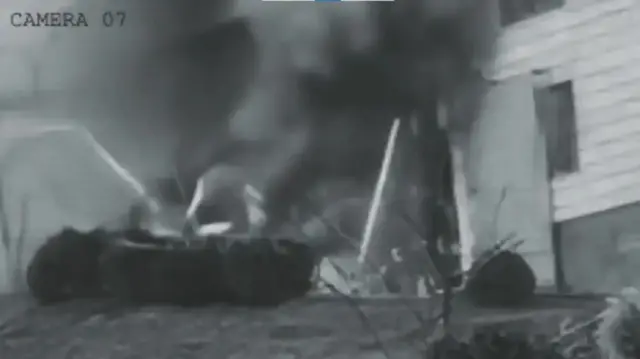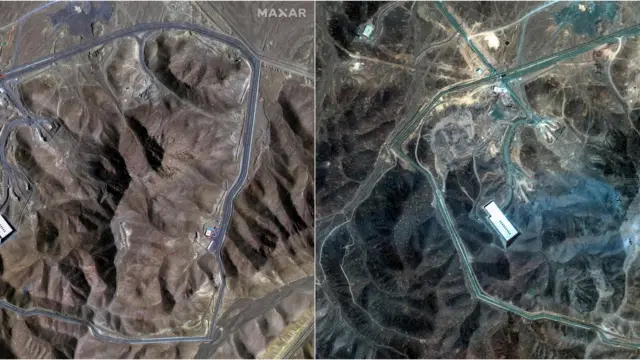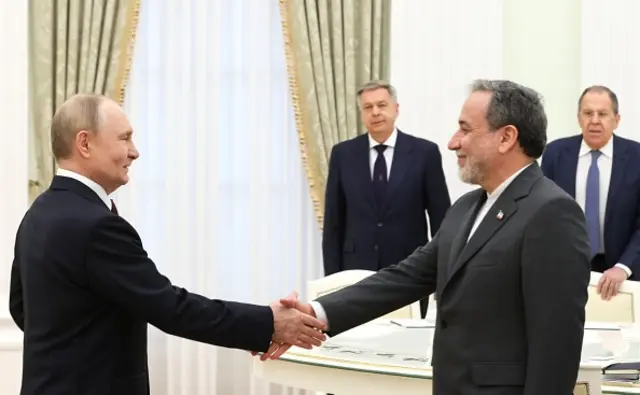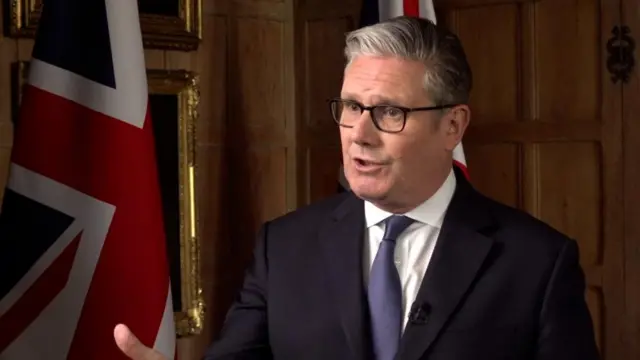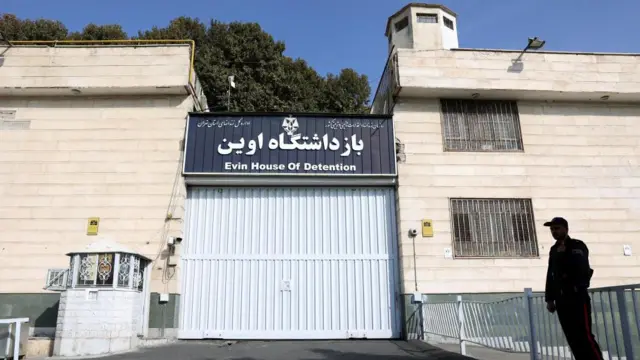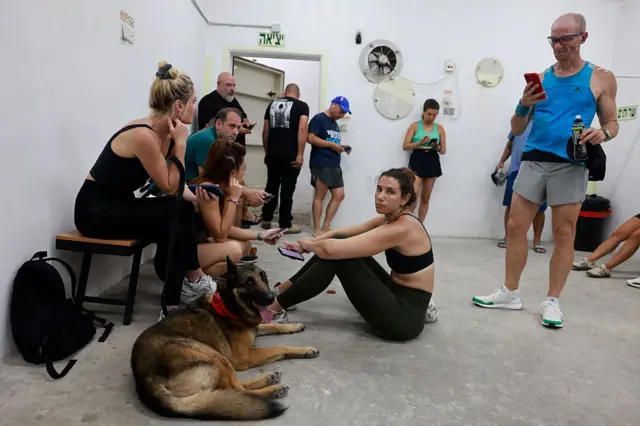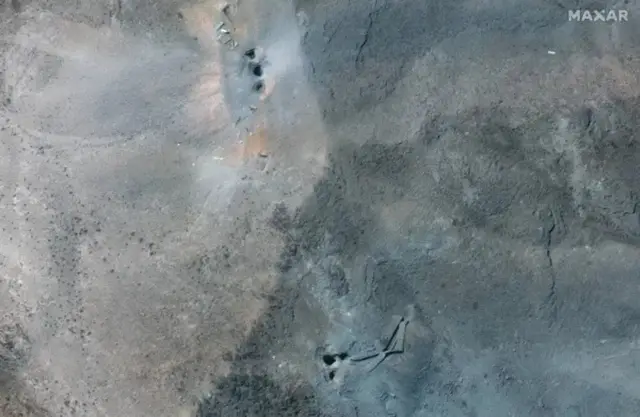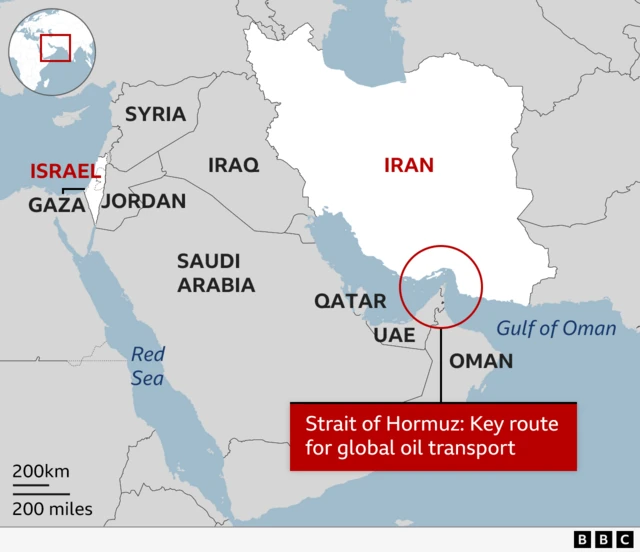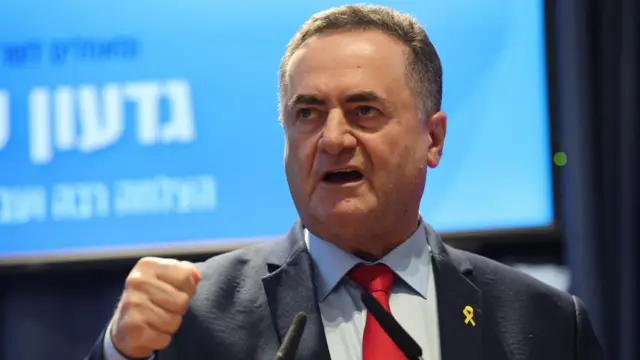Three oil tankers divert away from Strait of Hormuz - tracking datapublished at 13:28 BST 23 June
Three tankers have diverted away from the Strait of Hormuz and changed course, according to marine traffic data reports cited by Reuters.
The empty oil and chemical tankers include the Marie C and Red Ruby, which have now dropped anchor off the coast of the United Arab Emirates instead.
The Strait of Hormuz is the world's busiest oil shipping lane - and there has been speculation Iran could close it off in retaliation to the strikes.
We've written more on the strait and its importance here.
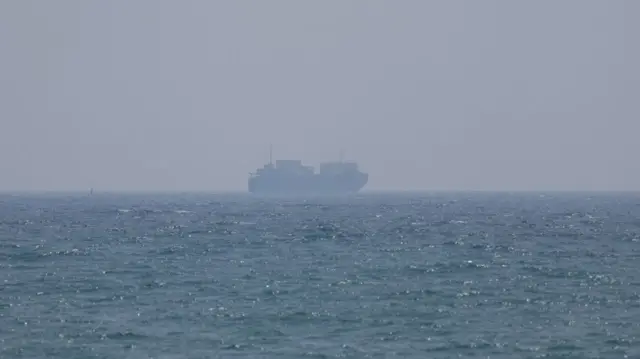 Image source, EPA
Image source, EPAA container ship - not one of the vessels that have diverted - seen sailing in the Strait of Hormuz earlier today
